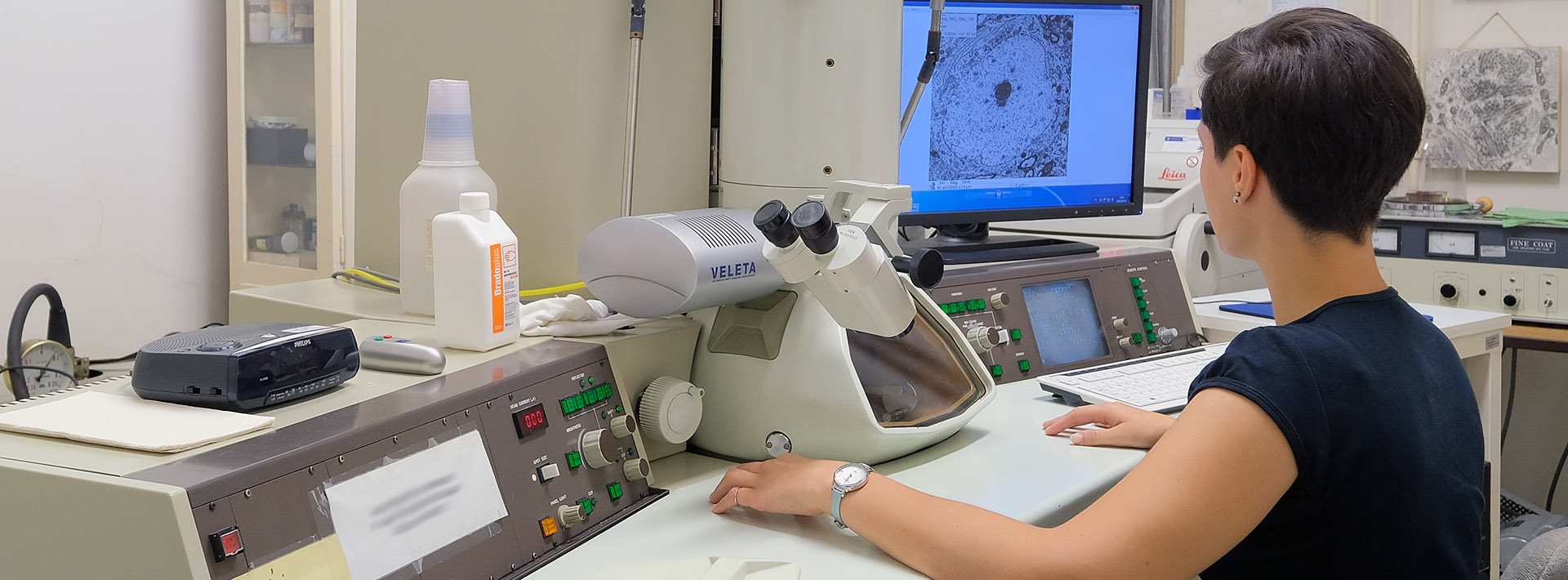Adatok
A Tantárgybejelentőben megadott hivatalos adatok az alábbi tanévre: 2024-2025
Tantárgyfelelős
-
Bugyi Beáta
associate professor,
Department of Medical Biology and Central Electron Microscope Laboratory
Óraszámok/félév
előadás: 12 óra
gyakorlat: 0 óra
szeminárium: 0 óra
összesen: 12 óra
Tárgyadatok
- Kód: OPF-CIR-T
- 1 kredit
- Pharmacy
- Optional modul
- autumn
Nincs
Kurzus létszámkorlát
min. 5 fő – max. 20 fő
Campus kurzusként elérhető . Campus-karok: GYTK TTK
Tematika
The cytoskeleton built of different protein networks has versatile structural and functional features essential for almost all cellular processes. The dysfunctioning of the cytoskeleton can often result in pathological alterations of cellular functions leading to diseases. The first module of the course introduces the components and properties of the cytoskeletal protein networks. The second module specializes in case studies on the pathological alterations of the cytoskeleton and the underlying diseases. Experimental techniques used to examine the cytoskeleton are presented during interactive classes and laboratory sessions. The course can contribute to a better understanding of the biological, physical, and chemical principles underlying cellular functioning, as well as corresponding topics of compulsory subjects (e.g. molecular cell biology).
Module 1 – introduction: Components and functions of the cytoskeleton.
Module 2 – case studies: Pathological alterations and diseases related to the cytoskeleton.
Module 3 – interactive sessions: Cell biological, biophysical and biochemical approaches in the investigation of the cytoskeleton.
Előadások
- 1.
Properties and biological functions of cytoskeletal polymers.
- Bugyi Beáta - 2.
Properties and biological functions of cytoskeletal polymers.
- Bugyi Beáta - 3.
Case study 1: cytoskeletal polymers as potential therapeutic targets.
- Gaszler Péter - 4.
Case study 2: carcinogenesis.
- Gaszler Péter - 5.
Case study 3: pathogens.
- Szütsné Tóth Mónika Ágnes - 6.
Case study 4: myopathies.
- Szütsné Tóth Mónika Ágnes - 7.
Lab techniques in the investigation of the cytoskeleton, laboratory visit 1.
- Bugyi Beáta - 8.
Lab techniques in the investigation of the cytoskeleton, laboratory visit 2.
- Bugyi Beáta - 9.
Lab techniques in the investigation of the cytoskeleton, laboratory visit 3.
- Leipoldné Vig Andrea Teréz - 10.
Lab techniques in the investigation of the cytoskeleton, laboratory visit 4.
- Leipoldné Vig Andrea Teréz - 11. Workshop. Students' projects and presentations. - Bugyi Beáta
- 12. Workshop. Students' projects and presentations. - Bugyi Beáta
Gyakorlatok
Szemináriumok
A tananyag elsajátításához szükséges segédanyagok
Kötelező irodalom
Saját oktatási anyag
Can be found on MS Teams group of the course.
Jegyzet
Ajánlott irodalom
Jonathon Howard: Mechanics of Motor Proteins and the Cytoskeleton, 2005
S. Trachtenberg: The Prokaryotic Cytoskeleton: A Written Symposium, Journal of Molecular Microbiology and Biotechnology, 2006
Leslie P. Gartner, James L. Hiatt (eds.): Color Textbook of Histology 3, illustrated, revised, Saunders/Elsevier, 2007
Online materials on departmental website (http://biofizika.aok.pte.hu)
A félév elfogadásának feltételei
Maximum of 25% absence allowed.
Félévközi ellenőrzések
Grading policy
The grade is based on the result of
a written test,
or short (5-10 minutes) presentations of Students’ projects or laboratory notebooks.
Távolmaradás pótlásának lehetőségei
The opportunity to make up for absence can be discussed with the course leader.
Vizsgakérdések
No exam in the exam period.
